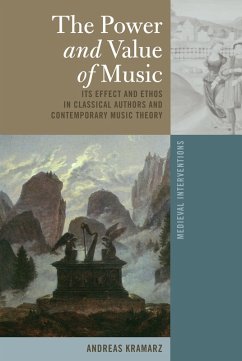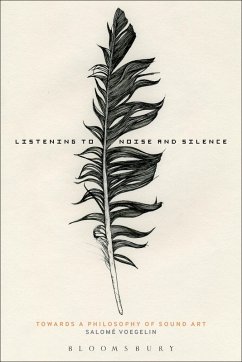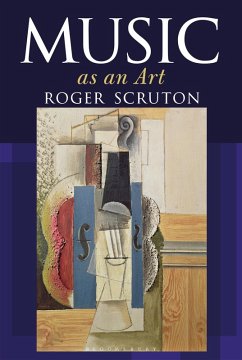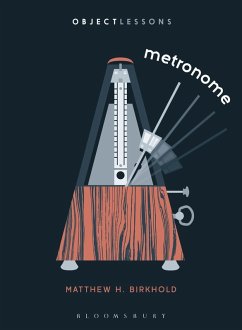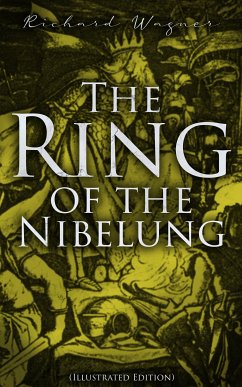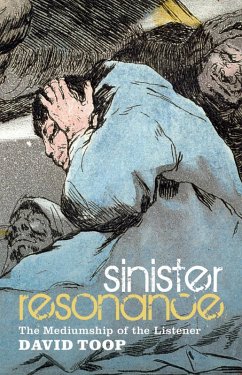
Power and Value of Music (eBook, ePUB)
Its Effect and Ethos in Classical Authors and Contemporary Music Theory
Versandkostenfrei!
Sofort per Download lieferbar
Statt: 128,65 €**
79,95 €
inkl. MwSt.
**Preis der gedruckten Ausgabe (Gebundenes Buch)
Alle Infos zum eBook verschenkenWeitere Ausgaben:

PAYBACK Punkte
40 °P sammeln!
Nobody doubts that music has a special, somewhat mysterious power. Less clear is how we can evaluate that power. What makes music good or bad? Are there objective criteria for such a distinction? What impact can or should music have on individuals and on society as a whole? What are the factors responsible for the effect of music? This book summarizes and discusses how authors of classical antiquity addressed these questions on musical «ethos» and how they can be approached from a modern-day perspective. After systematically assembling and assessing the value-carrying characterizations of mu...
Nobody doubts that music has a special, somewhat mysterious power. Less clear is how we can evaluate that power. What makes music good or bad? Are there objective criteria for such a distinction? What impact can or should music have on individuals and on society as a whole? What are the factors responsible for the effect of music? This book summarizes and discusses how authors of classical antiquity addressed these questions on musical «ethos» and how they can be approached from a modern-day perspective.
After systematically assembling and assessing the value-carrying characterizations of music in poetic literature, the author reviews all noteworthy Greek and Latin writings which enlighten musical «ethos» from the theoretical-philosophical perspective. He then carries the intuitions of the ancients into our time by proposing a coherent model to explain the relationship between music, ethos, and emotions based on the results of contemporary research in the disciplines of music psychology and philosophy. The concept of harmony, understood as the appropriate measure or as the balance of opposites and so central to the reflections of the ancient authors, plays a key role in shedding light on the value and impact, both positive and negative, of music in human existence.
This book provides the most comprehensive overview available about the effect and ethos of music in antiquity and discusses many related questions of scholarly interest. It includes numerous references provided in the original language with translation, ample empirical material for further research, and an extensive bibliography.
After systematically assembling and assessing the value-carrying characterizations of music in poetic literature, the author reviews all noteworthy Greek and Latin writings which enlighten musical «ethos» from the theoretical-philosophical perspective. He then carries the intuitions of the ancients into our time by proposing a coherent model to explain the relationship between music, ethos, and emotions based on the results of contemporary research in the disciplines of music psychology and philosophy. The concept of harmony, understood as the appropriate measure or as the balance of opposites and so central to the reflections of the ancient authors, plays a key role in shedding light on the value and impact, both positive and negative, of music in human existence.
This book provides the most comprehensive overview available about the effect and ethos of music in antiquity and discusses many related questions of scholarly interest. It includes numerous references provided in the original language with translation, ample empirical material for further research, and an extensive bibliography.
Dieser Download kann aus rechtlichen Gründen nur mit Rechnungsadresse in A, B, BG, CY, CZ, D, DK, EW, E, FIN, F, GR, HR, H, IRL, I, LT, L, LR, M, NL, PL, P, R, S, SLO, SK ausgeliefert werden.




